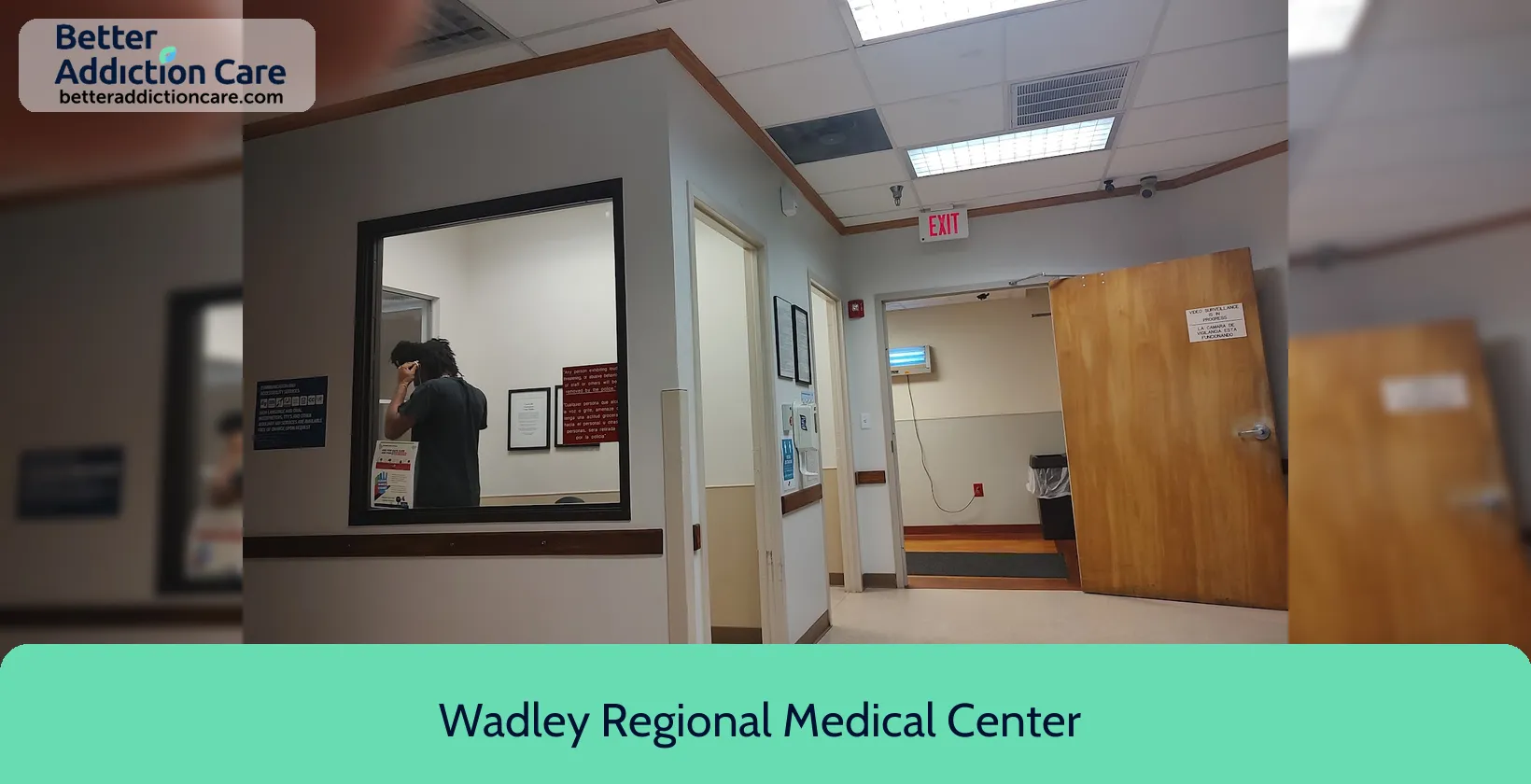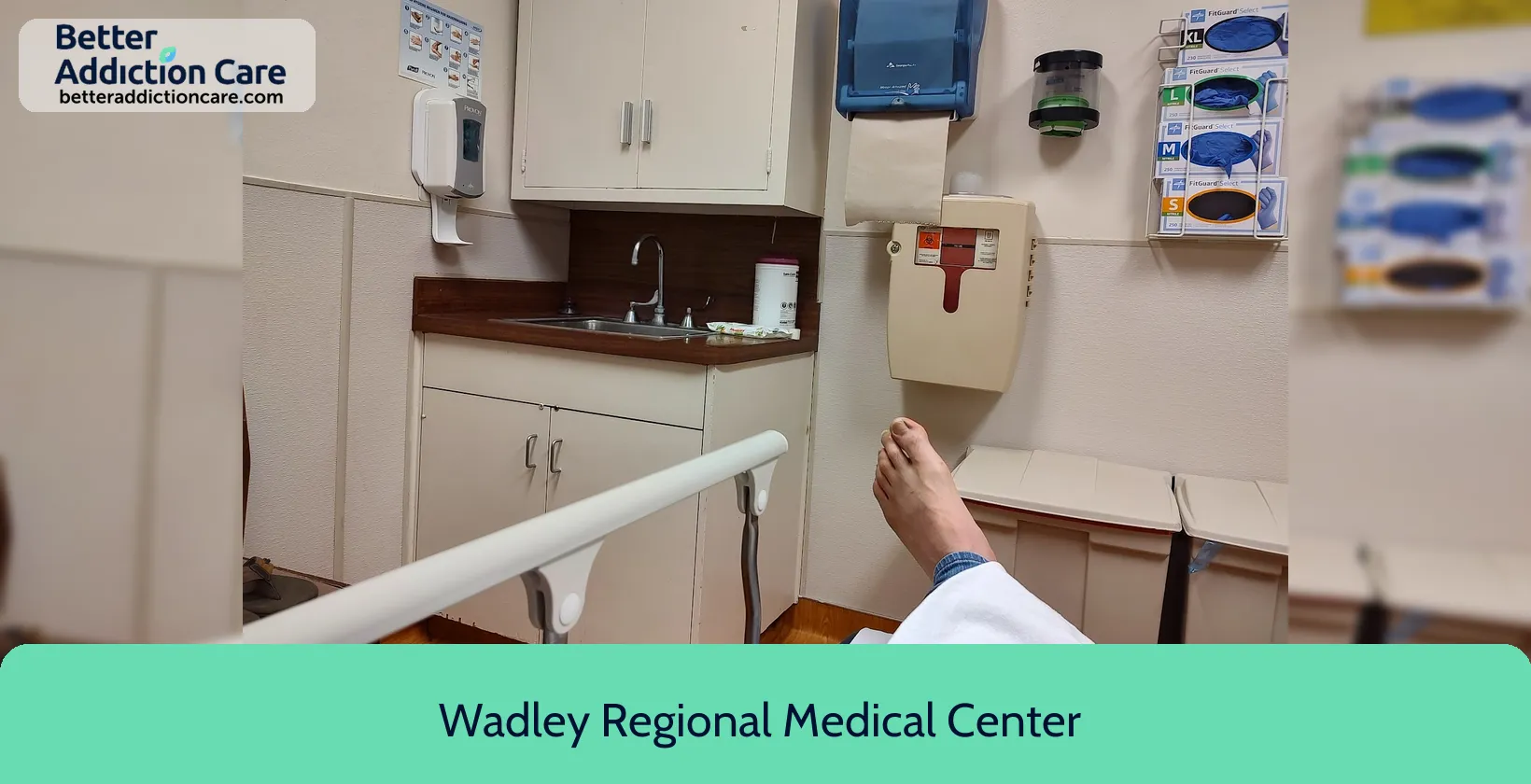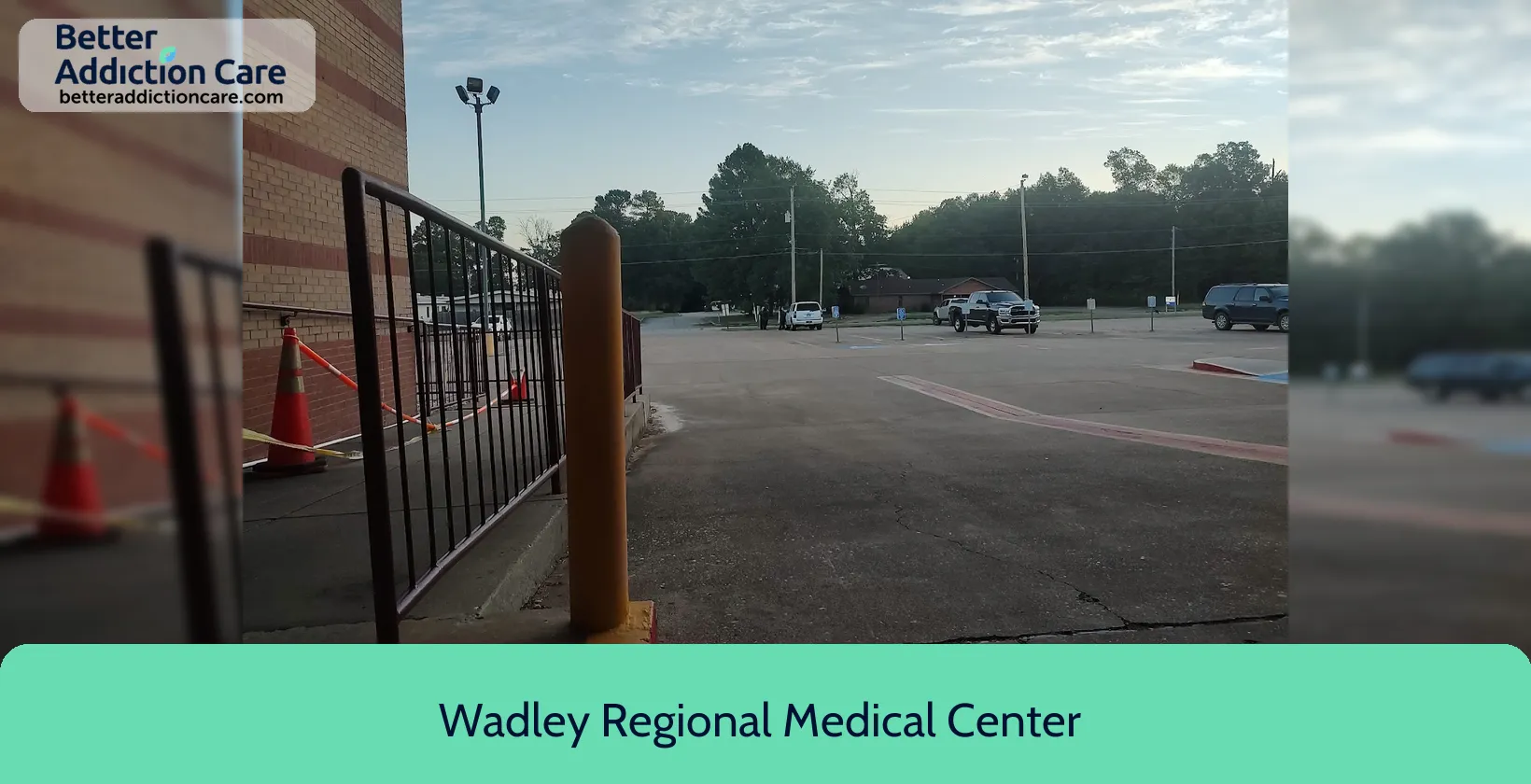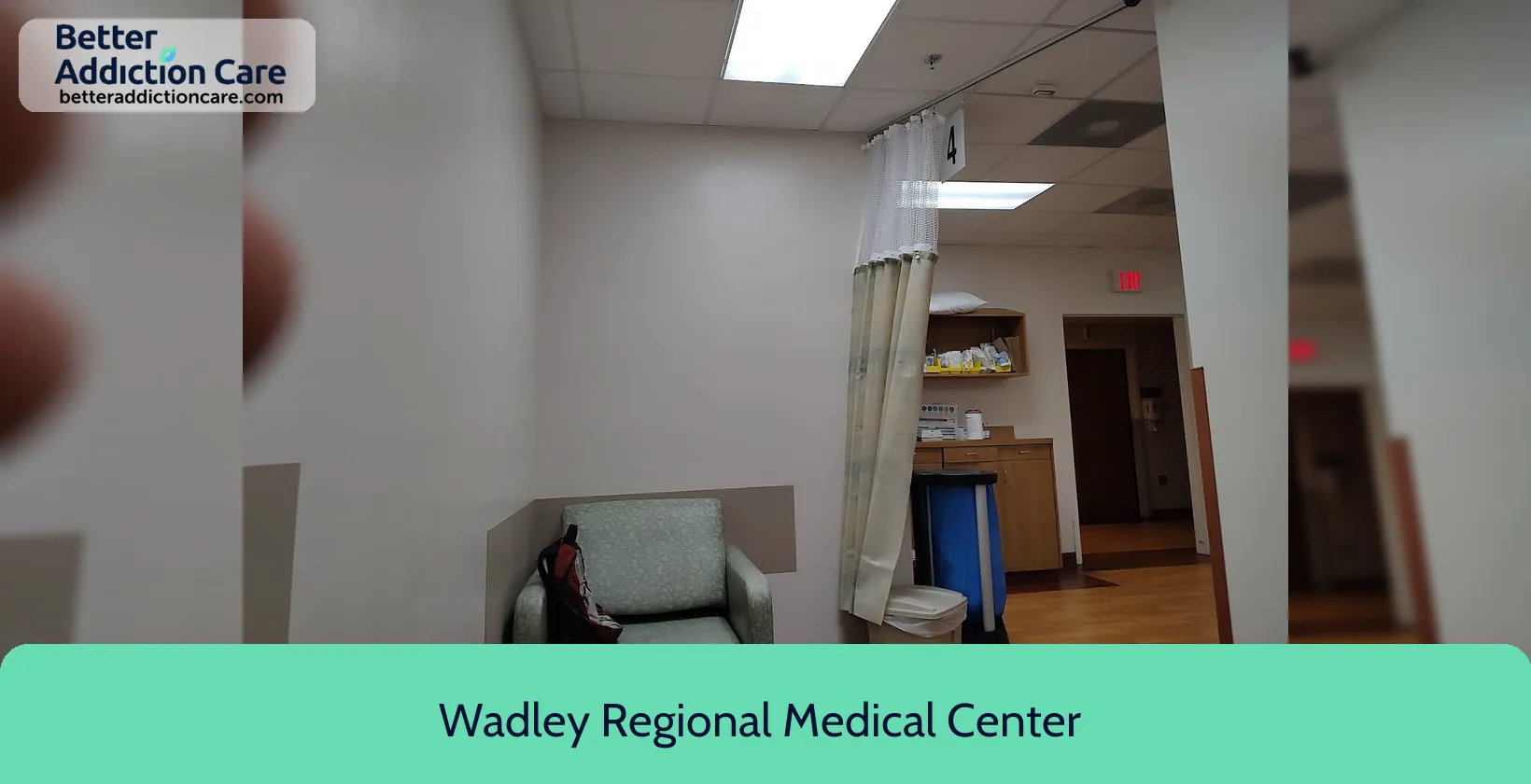Wadley Regional Medical Center - Behavioral Health
Overview
Wadley Regional Medical Center - Behavioral Health is a mental health treatment center for people seeking treatment near Hempstead County. As part of their treatment modalities for recovery, Wadley Regional Medical Center - Behavioral Health provides couples/family therapy, group counseling, and cognitive behavioral therapy during treatment. Wadley Regional Medical Center - Behavioral Health is located in Hope, Arkansas, accepting cash or self-payment for treatment.
Wadley Regional Medical Center - Behavioral Health at a Glance
Payment Options
- Cash or self-payment
- Medicaid
- Medicare
- State-financed health insurance plan other than Medicaid
- Private health insurance
Assessments
- Screening for tobacco use
- Comprehensive mental health assessment
- Comprehensive substance use assessment
Age Groups
- Seniors or older adults
- Adults
- Seniors
Ancillary Services
- Intensive case management
- Case management service
- Chronic disease/illness management
- Court-ordered outpatient treatment
- Diet and exercise counseling
Highlights About Wadley Regional Medical Center - Behavioral Health
6.77/10
With an overall rating of 6.77/10, this facility has following balanced range of services. Alcohol Rehabilitation: 8.00/10, Drug Rehab and Detox: 6.00/10, Insurance and Payments: 6.00/10, Treatment Options: 7.09/10.-
Alcohol Rehabilitation 8.00
-
Treatment Options 7.09
-
Drug Rehab and Detox 6.00
-
Insurance and Payments 6.00
Treatment At Wadley Regional Medical Center - Behavioral Health
Treatment Conditions
- Mental health treatment
- Substance use treatment
- Co-occurring Disorders
Care Levels
- Hospital inpatient/24-hour hospital inpatient
Treatment Modalities
- Couples/family therapy
- Group counseling
- Cognitive behavioral therapy
- Dialectical behavior therapy
- Integrated Mental and Substance Use Disorder treatment
Ancillary Services
Languages
- Sign language services for the deaf and hard of hearing
Additional Services
- Pharmacotherapies administered during treatment
- Laboratory testing
Special Programs
- Clients with co-occurring mental and substance use disorders
- Veterans
- Criminal justice (other than DUI/DWI)/Forensic clients
- Persons with Alzheimers or dementia
- Persons with post-traumatic stress disorder (PTSD)
Get Help Now
Common Questions About Wadley Regional Medical Center - Behavioral Health
Contact Information
Other Facilities in Hope

6.65
DISCLAIMER: The facility name, logo and brand are the property and registered trademarks of Therapeutic Family Services, and are being used for identification and informational purposes only. Use of these names, logos and brands shall not imply endorsement. BetterAddictionCare.com is not affiliated with or sponsored by Therapeutic Family Services.




